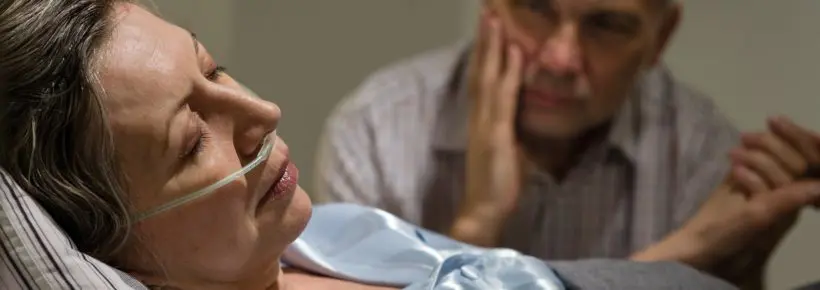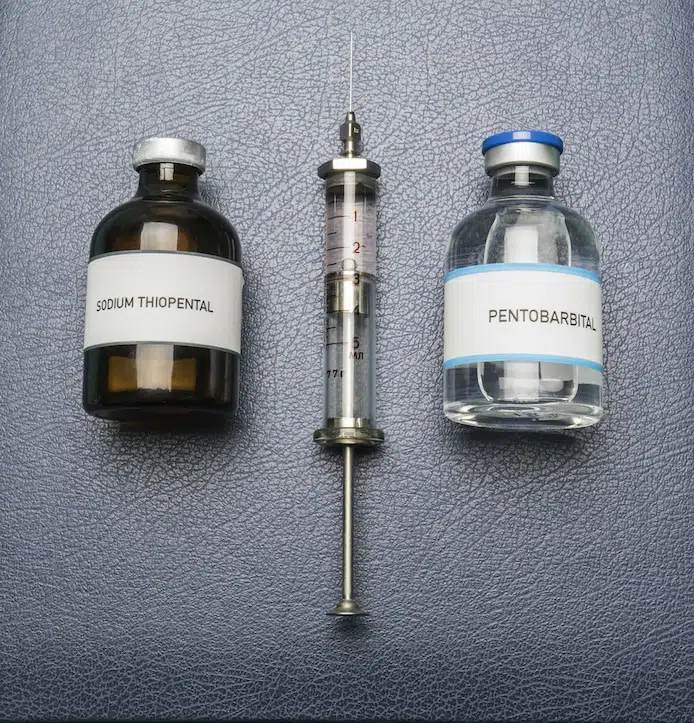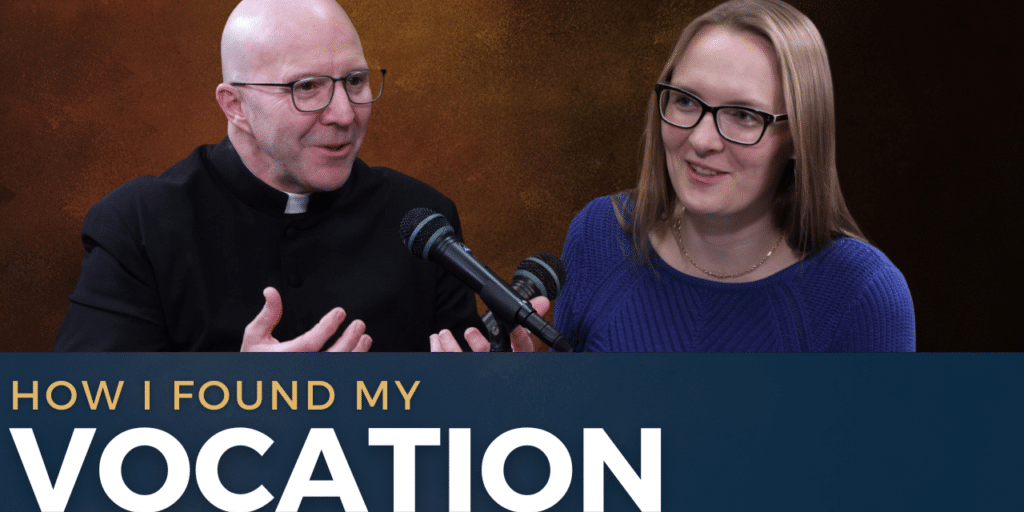Legal Euthanasia Undermines Authentic Care
“From the very beginning, the Church has known how to accompany the dying. How many priests and religious men and women have spent hours with persons who were at the end of life? At the end of their earthly journey, men do not need a cold, death-dealing syringe. They need a compassionate, loving hand.”
Cardinal Robert Sarah, The Day is Now Far Spent
A few days ago, the French Minister of Labour, Health and Solidarity, Catherine Vautrin, introduced a bill into the French Parliament that would legalize assisted suicide. The bill is supported by French President Emmanuel Macron.
Naturally, the bill was presented by the French government as being motivated by “compassion,” and as only allowing assisted suicide under “strict” conditions. Under the legislation, patients would be able to get a prescription for lethal pills, if doctors certify that they are suffering an incurable illness.
According to the government, the bill is “an ethical response to the need to support the sick and the suffering. A solidarity project based on the idea of creating a space that is neither a new right nor a freedom, but a space that is a balance between respect and personal autonomy.”
Euthanasia is Always a Slippery Slope
France is merely the latest in a series of Western nations to legalize, or consider legalizing, the practice of so-called “aid in dying.”
While France’s law would be stricter than others, the grim fact is that those nations with more permissive laws also initially legalized euthanasia under such “strict” conditions—typically requiring that patients be suffering a terminal illness and be experiencing extreme pain.
However, time and time again, we have seen that it is only a matter of time before these initial “strict” conditions are loosened. Once death is recognized and widely accepted as a medical treatment, pro-euthanasia advocates seem to have little trouble in expanding the circumstances in which it can be prescribed.
In other words, experience has proven that in this case the slippery slope is very slippery indeed.
In Canada, it only took a few, short years to go from euthanasia only for the terminally ill, to a situation where almost anybody can qualify, so long as he or she can shop around for a doctor willing to certify that they are suffering enough to qualify. Now, the country is on the verge of legalizing assisted suicide for the mentally ill, and for minors.
Belgium and the Netherlands also have similarly liberal laws, after initially legalizing assisted suicide and euthanasia only for the terminally ill. Although the Netherlands has long permitted euthanasia for newborn infants under the infamous Groningen Protocol, it recently also expanded the law to permit the euthanasia of children under the age of 12.
Other nations that permit euthanasia or assisted suicide include Switzerland, Italy, Austria, Luxembourg, Spain and (most recently) Portugal.
Healthy Woman with Autism Seeks Euthanasia
However, as euthanasia and assisted suicide expand into ever more nations, even some pro-euthanasia advocates are starting to become uncomfortable. The reason for their discomfort has been a deluge of deeply disturbing stories.
Some of these cases involve physically healthy individuals, with conditions that are in themselves curable, and yet who opt to end their lives. Many others involve individuals who insist that they want to live, but who have simply been unable to find the support that they need to live dignified lives, or access to medical treatments that might alleviate their pain.
Two cases have recently captured international headlines.
One case, from Canada, involves a physically healthy 27-year-old women suffering from autism. Recently, a judge ruled that the woman can be euthanized, over the objections of her father. The judge acknowledged that the woman’s death would cause her father “profound grief” but that her “dignity and right to self-determination outweighs” her father’s concerns.
According to the woman’s father, however, his daughter “is vulnerable and is not competent to make the decision to take her own life.”
During one hearing, the only conditions mentioned that the woman has been diagnosed with were autism and hyperactivity. Yet, despite the lack of evidence that she has any severe physical ailment, and despite the fact that a legal change permitting euthanasia for mental illness has not yet gone through, she was approved for euthanasia—an apparent violation of the law.
Disturbingly, however, the judge in the case specifically emphasized that he had not looked into why she was seeking euthanasia. “I do not know why you seek MAID [medical assistance in dying],” the judge wrote. “Your reasons remain your own because I have respected your autonomy and your privacy.”
However, the judge had good reason to investigate the woman’s reasons, given that originally one of the doctors to whom the woman went had refused to approve her for euthanasia.
Pro-Death Laws Protect Corrupt Doctors
Many anti-euthanasia advocates have raised the alarm about “doctor shopping,” in which someone seeking euthanasia can simply keep visiting doctors until he finds one willing to check the right boxes. Accounts suggests that almost any patient can find a doctor willing to approve euthanasia for any reason. Furthermore, such doctors will never be investigated or prosecuted, rendering the letter of the law essentially moot.
Thus, “strict” safeguards, become meaningless “guidelines.” As Alex Schadenberg, who leads up the Euthanasia Prevention Coalition, put it, “Canada’s euthanasia law was not designed to protect vulnerable people.” Instead, “The law is designed to protect the doctors who are willing to kill.”
The other case, recently highlighted in a feature article in The Free Press, involves a physically healthy, 28-year-old woman in the Netherlands. The woman is seeking euthanasia due to suffering depression, autism, and borderline personality disorder—none of which are lethal or untreatable.
Zoraya ter Beek lives in a nice house and has a boyfriend, with whom she says she is in love. And yet, despite suffering no terminal illness, she plans to end her life in May. And her “doctors” will help her to do so.
Option of Death Discourages Healing
As The Free Press reports, doctors are noticing a growing number of cases of physically healthy people seeking euthanasia or assisted suicide for reasons such as anxiety and depression, which are in turn attributed to things like economic uncertainty or climate change.
The worst thing about these cases, is that liberalized euthanasia and assisted suicide laws have reduced the incentives for health care workers, and for the patient himself, to do the hard work to heal.
“I’m seeing euthanasia as some sort of acceptable option brought to the table by physicians, by psychiatrists, when previously it was the ultimate last resort,” Stef Groenewoud, a health care ethicist at Theological University Kampen, told The Free Press.
“I see the phenomenon especially in people with psychiatric diseases, and especially young people with psychiatric disorders, where the health care professional seems to give up on them more easily than before.”
The situation is so bad, that even the liberal Associated Press recently ran a feature article highlighting the concerns of disability rights activists that people are being killed simply because of disabilities that are neither life-threatening nor accompanied by unbearable pain.
One activist, Tim Stainton, director of the Canadian Institute for Inclusion and Citizenship at the University of British Columbia, did not mince words. He told the AP that Canada’s euthanasia regime is “probably the biggest existential threat to disabled people since the Nazis’ program in Germany in the 1930s.”
True Compassion is Accompaniment
A poll of the 13,000+ people who have been killed under Canada’s law found that the overwhelming majority of them cited the reason for pursuing MAID as being the “loss of ability to engage in meaningful life activities.” However, a troubling percentage also cited the fact that they felt like a “burden” on family and friends as a reason.
The growing number of horror stories, as well as the results of this poll, overwhelmingly confirm the primary practical concern that anti-euthanasia advocates have expressed all along: by eradicating the Hippocratic Oath and allowing doctors to employ death and suicide as a medical “cure,” legalized euthanasia and assisted suicide create positive incentives towards death as a “solution.”
In other words, legalized euthanasia and assisted suicide is not a “neutral” initiative that simply allows a person to have a “choice.” Instead, such laws actively undermine the humanizing cultural norms and practices, built over millennia, that educate and encourage family, friends, and health care workers to shoulder the heavy burden of accompanying the sick and dying with compassion.
The point is that freedom does not exist in a vacuum. Allowing doctors to help patients kill themselves, means that many patients will be more likely to choose suicide, and many doctors and family members less likely to provide meaningful help to suffering patients that would steer them away from suicide.
Palliative Care Workers Reject Euthanasia
In reflecting on euthanasia in The Day Is Now Far Spent, Cardinal Robert Sarah insightfully observed that health care workers who work in palliative care tend to be overwhelmingly opposed to euthanasia. And indeed, a recent poll in France found that 80% of health care workers who specialize in palliative care, “would refuse to prescribe, supply, prepare and/or administer a lethal injection.”
The simple reason is because palliative workers know that, with the right spirit and the amazing tools provide by modern medicine, it is possible to help people “die with dignity,” without killing them, or helping them kill themselves.
“To die with dignity is to die being loved!” writes Cardinal Sarah in The Day Is Now Far Spent. “All the rest is a lie!”
I can do no better than to conclude with the good Cardinal’s heartfelt exhortation that follows this passage. He writes:
I think that the reason why there is a debate today about euthanasia is because we who are well cannot bear the presence of the sick and suffering. They are begging for our love and compassion. We do not have the courage to look them in the eye. We no longer have enough love to give to them. Our society is experiencing a drought of love, and so it wants to get rid of those who need it most. Go visit the hospitals, go simply, each day, to hold the hand of a patient or of an elderly person who has been abandoned to solitude! I beg you, try it; you will be able to tell even in your flesh what it is to love! Mother Teresa also said: “And this is what I bring before you [propose to you], to love one another until it hurts, but don’t forget that there are many children, many children, many men and women who haven’t got what you have. And remember to love them until it hurts.”
Reading these stories of physically healthy, young people opting to kill themselves, with the support of the medical establishment, simply drives home how desperately sick our culture is. We have, indeed, forgotten how to love.
Love can be painful. As Christ showed us on the cross, it demands our whole selves. And yet, what else is worth living for, other than love? It is the greatest thing in the universe, and the only thing worth living for. We must re-learn what it means to love. Only in this way can we stem the tide of the culture of death.
As president of Human Life International, Fr. Boquet is a leading expert on the international pro-life and family movement, having journeyed to nearly 90 countries on pro-life missions over the last decade. Father Boquet works with pro-life and family leaders in 116 counties that partner with HLI to proclaim and advance the Gospel of Life. Read his full bio here.








